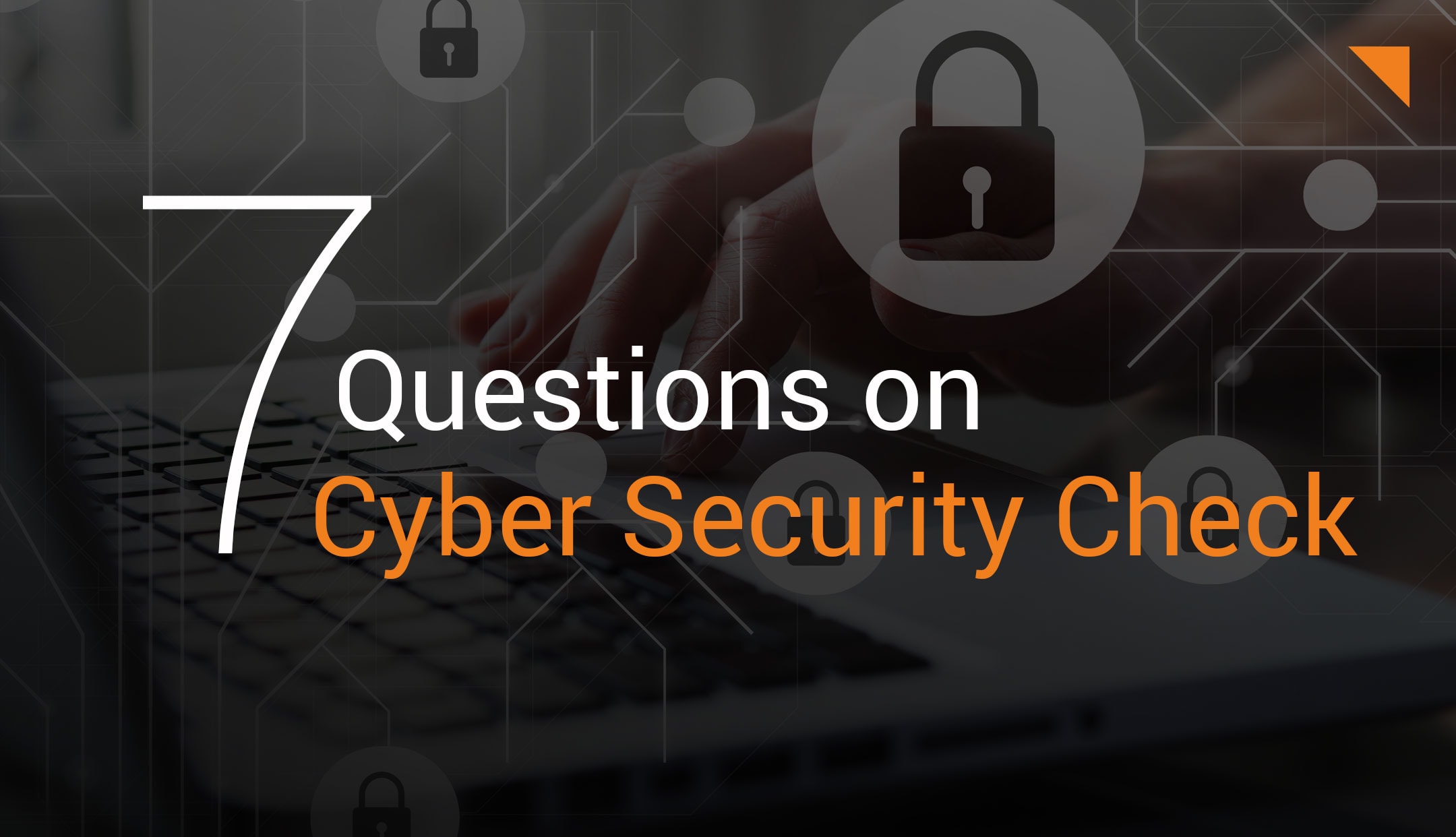Cyber security has become a key concern for businesses of all sizes in today's interconnected world, where organizations are increasingly reliant on digital systems. Cyber attacks are on the rise and thus it is essential to proactively protect against these threats.
A Cyber Security Check is an effective way to review and improve the status of your organization's cyber security posture.

Nico Fechtner, Senior Consultant Security Audits & PCI, answers the 7 most important questions about our Cyber Security Check, giving you an initial overview and a quick introduction:
- What is a Cyber Security Check?
- Who should perform a Cyber Security Check?
- When should a Cyber Security Check be performed?
- What is the test focus of a Cyber Security Check?
- How does a Cyber Security Check differ from an internal audit?
- 6. How is a Cyber Security Check performed?
- What are the next steps for a company after a Cyber Security Check?
1. What is a Cyber Security Check?
Companies are often uncertain about their own cyber security situation - and this harbors considerable risks. A Cyber Security Check is a comprehensive review and assessment of a company's security measures to determine the maturity level of cyber security and to create necessary transparency about one's security posture. You receive a comprehensive assessment of your status quo. This allows you to take targeted action to address risks.
2. Who should perform a Cyber Security Check?
Any company, regardless of size or industry, can perform a Cyber Security Check. The threat landscape is constantly evolving and attackers are looking for new ways to penetrate networks and steal sensitive information. It is important to involve experts with in-depth knowledge and experience in cyber security to form a clear picture of the situation. This will lay the foundation for all further steps to improve the level of security in the long term.
3. When should a Cyber Security Check be performed?
A Cyber Security Check can be performed at any time. However, it is especially relevant when there is not enough transparency about the company's own security situation. A Cyber Security Check can also be part of a due diligence review or be conducted before or after contracting a cyber security insurance.
4. What is the test focus of a Cyber Security Check?
A Cyber Security Check covers various test focuses that holistically analyze all aspects of cyber security. Systems, networks, applications, policies, processes and procedures, for example, are tailored to your individual objectives. This includes a variety of specific sub-areas with defined requirements, such as the secure handling of cloud applications, the establishment of vulnerability management, the review of your identity and access management, and the management of security incidents.
5. How does a Cyber Security Check differ from an Internal Audit?
The main difference between a Cyber Security Check and an Internal Audit is the goal or motivation. A Cyber Security Check is usually designed to holistically assess the status quo of a company's IT risks and to examine all aspects of cyber security. The scope of a Cyber Security Check is flexibly adapted to your individual needs and requirements to enable a comprehensive cyber security assessment.
In contrast, the test catalog of an Internal Audit is often based on regulatory requirements, such as preparations for an External Audit in accordance with ISO 27001, or focuses mainly on fulfilling internal requirements with regard to defined policies, processes and compliance standards.
Both a Cyber Security Check and an Internal Audit are valuable tools, each with a different focus to help organizations achieve their security and compliance goals. The choice between a Cyber Security Check and an Internal Audit depends on your specific needs and goals.
6. What is the process of a Cyber Security Check?
A Cyber Security Check usually consists of a multi-stage process model. Since every company is structured individually and the company goals can vary greatly, the check usually begins with a kick-off meeting during which the objectives, the scope of the check and the company's goals are defined. Usually, this does not require extensive preparation on your part. Common questions might include whether to include outsourced business processes or the depth of the review.
Subsequently, experienced security experts conduct interviews with the appropriate contacts (e.g. CISO, administrators, HR), in which the relevant cyber security issues are discussed and selected systems are tested in a live demo.
After the assessment, the cyber security maturity level is determined across all relevant areas and all identified risks are recorded and prioritized according to their respective criticality. The results are presented to you in a final presentation and the next steps are coordinated with all contact persons.
7. What are the next steps for a company after a Cyber Security Check?
Based on the recommended measures, project plans can be prepared and the corrective measures can be prioritized and implemented internally. This includes, for example, the specific development of measures for identified vulnerabilities or the adaptation of an existing cyber security strategy. If the need for protection is particularly high, an in-depth and targeted technical security analysis, such as a pentest, can also be conducted. Performing the Cyber Security Check again at a later time can verify or confirm progress. All these measures help to strengthen the company's cyber security in the long term.
Do you have further questions or need assistance with analyzing your cybersecurity? Contact us, we are happy to help.



